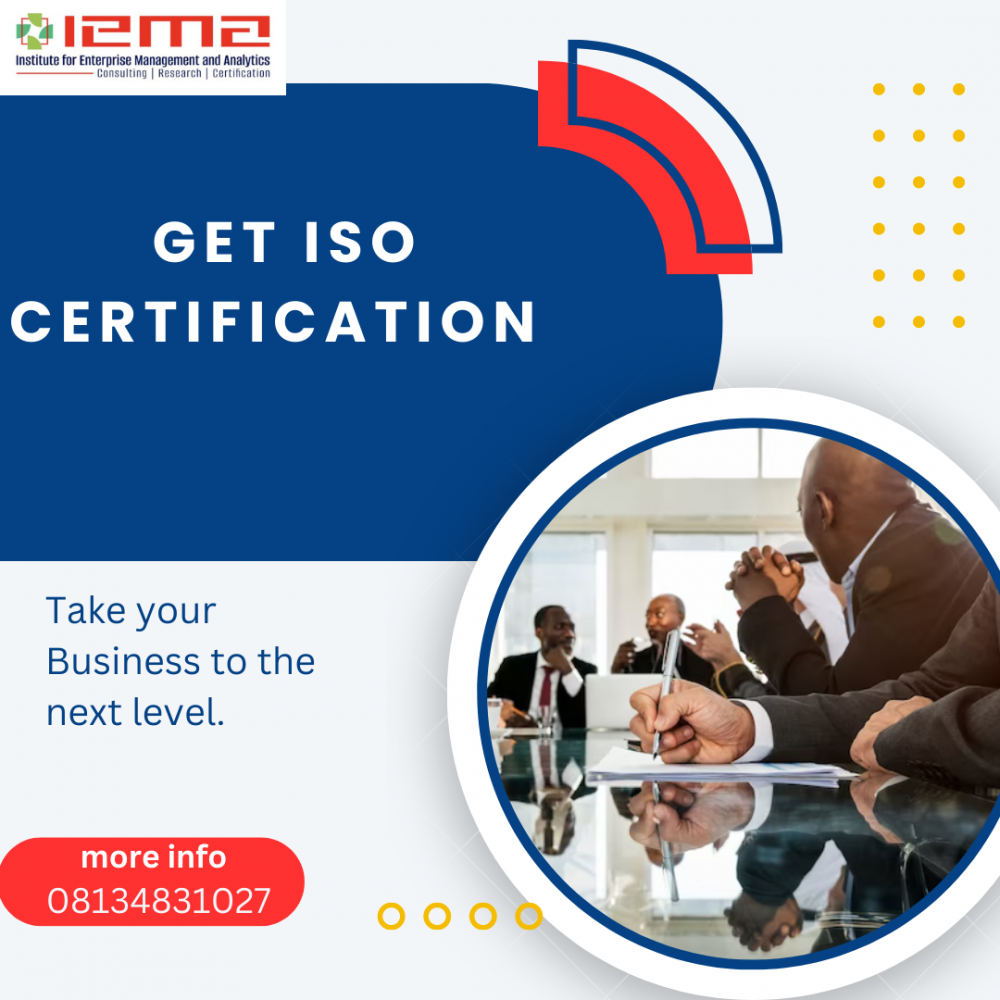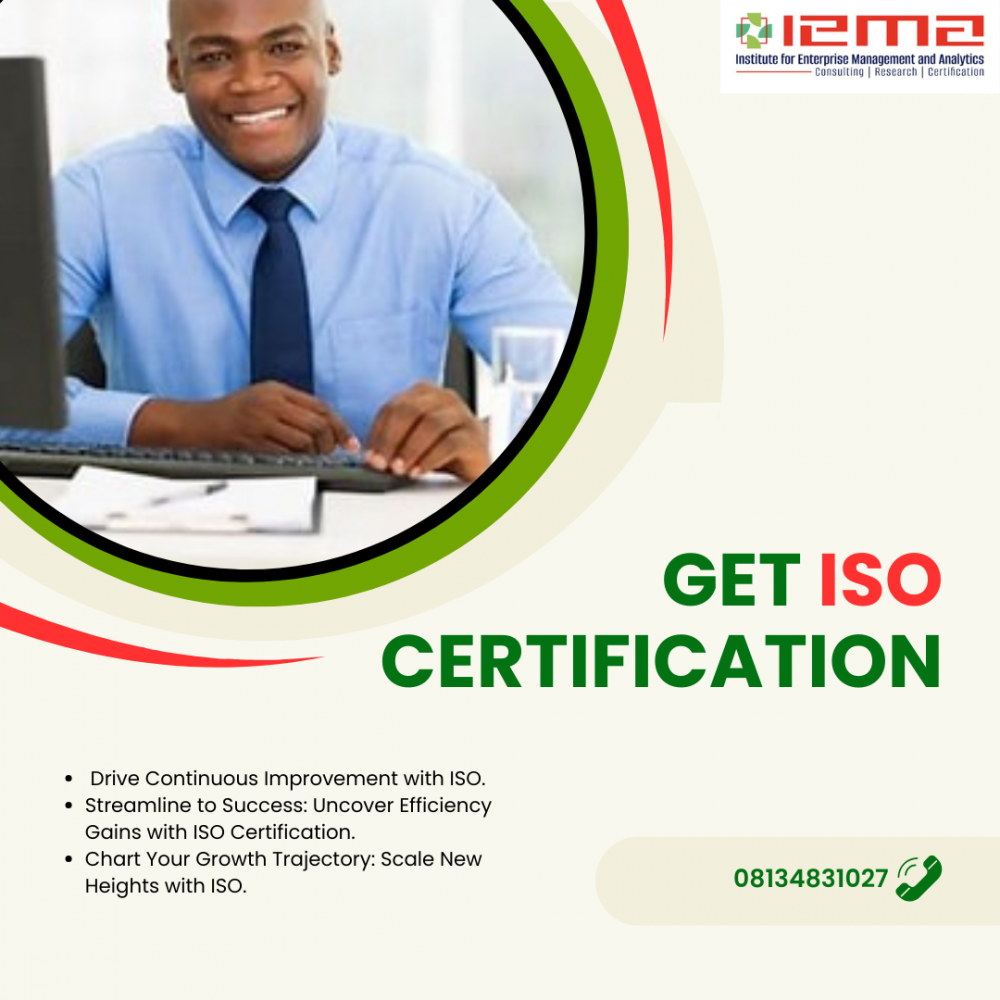In today’s competitive business landscape, achieving sustainable growth requires more than just increasing sales and expanding market reach. Companies must also focus on improving their processes, ensuring product quality, and meeting regulatory requirements. ISO certification, recognized globally, offers a strategic pathway for businesses to enhance their operations, build credibility, and drive long-term growth. This article delves into how ISO certification serves as a strategic investment for business growth, exploring its benefits and impact on various facets of business operations.
1. Understanding ISO Certification: ISO (International Organization for Standardization) develops standards to ensure the quality, safety, and efficiency of products, services, and systems. ISO certification demonstrates that a company adheres to these standards, which cover a wide range of industries and functions. Some key standards include:
- ISO 9001: Quality Management Systems
- ISO 14001: Environmental Management Systems
- ISO 45001: Occupational Health and Safety Management Systems
- ISO 27001: Information Security Management Systems
2. Enhancing Operational Efficiency: ISO certification promotes the implementation of systematic processes and continuous improvement practices. This leads to:
- Streamlined Processes: ISO standards require companies to document their procedures clearly, ensuring consistency and reducing errors and inefficiencies.
- Resource Optimization: Efficient use of resources minimizes waste and reduces costs, contributing to better financial performance.
- Performance Metrics: Regular monitoring and measurement of processes help identify areas for improvement, driving operational excellence.
3. Building Customer Trust and Loyalty: Customers are increasingly concerned about the quality and reliability of products and services. ISO certification provides:
- Quality Assurance: Adherence to ISO standards ensures that products and services consistently meet customer expectations, enhancing satisfaction and loyalty.
- Credibility and Trust: ISO certification is recognized worldwide as a mark of quality and reliability, building trust with customers and stakeholders.
- Market Differentiation: Certified companies stand out from competitors, making it easier to attract new customers and retain existing ones.
4. Accessing New Markets and Opportunities: ISO certification can open doors to new business opportunities and markets by:
- Meeting Regulatory Requirements: Many industries and countries require ISO certification as a prerequisite for doing business, especially in highly regulated sectors like healthcare, automotive, and food production.
- Global Recognition: ISO certification is globally recognized, facilitating entry into international markets and partnerships.
- Increased Competitiveness: Certified companies are better positioned to bid for contracts and tenders, especially those requiring stringent quality and safety standards.
5. Risk Management and Resilience: ISO standards include robust risk management frameworks, which help businesses:
- Identify and Mitigate Risks: Systematic risk assessment and management practices reduce the likelihood of disruptions and enhance operational resilience.
- Ensure Compliance: Adhering to regulatory and legal requirements minimizes the risk of non-compliance and associated penalties.
- Enhance Business Continuity: Proactive risk management ensures business continuity, even in the face of unexpected challenges.
6. Fostering a Culture of Continuous Improvement: ISO certification encourages a culture of continuous improvement, where businesses:
- Empower Employees: Engaging employees in the process of maintaining and improving quality standards boosts morale and productivity.
- Innovate and Improve: Regular audits and reviews drive innovation and process enhancements, leading to better products and services.
- Achieve Long-Term Success: A commitment to continuous improvement ensures sustained growth and adaptability in a changing market landscape.
7. Real-World Examples and Case Studies: Many successful companies attribute part of their growth to ISO certification:
- Toyota: Known for its commitment to quality, Toyota’s adherence to ISO 9001 standards has played a crucial role in its global success and reputation for reliability.
- Nestlé: Implementing ISO 14001 has helped Nestlé improve its environmental performance, enhancing its brand image and meeting regulatory requirements in various markets.
- IBM: ISO 27001 certification has strengthened IBM’s information security management, building trust with clients and partners in the digital age.
Conclusion:
ISO certification is more than just a compliance requirement; it is a strategic investment that drives business growth. By enhancing operational efficiency, building customer trust, opening new markets, managing risks, and fostering continuous improvement, ISO certification positions companies for long-term success. In an increasingly competitive and regulated global market, businesses that embrace ISO standards are better equipped to achieve sustainable growth and remain resilient in the face of challenges. Investing in ISO certification is, therefore, a smart move for any organization looking to thrive in today’s dynamic business environment.




Leave a Reply